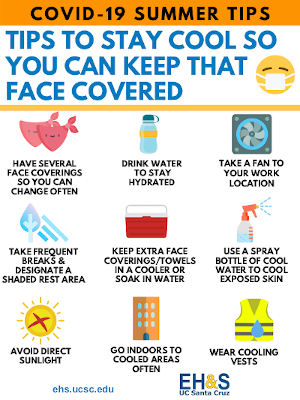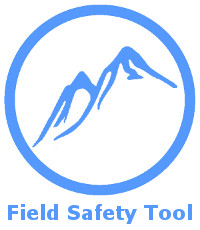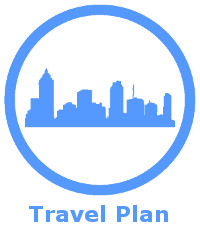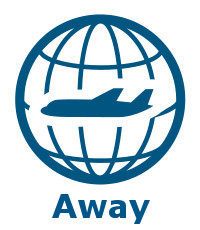Field Research
1) A collaborative team of researchers works on a late pre-colonial archaeology site. 2) Researchers count bats in caves where as many as 500,000 may hibernate at one time. 3) An adult male northern elephant seal undergoing a health checkup by researchers at UC Santa Cruz prior to tracking his 5-month long foraging migration to Alaskan waters. 4) Students and researchers conduct studies on plants and animals in the UCSC Forest Ecology Research Plot within the north campus natural reserve. 5) A PISCO scientific diver conducts a fish survey through the kelp forest.
Resources
Field Safety Policy
UC Office of the President - Field Research Safety Center of Excellence
Safe and Inclusive Field Work
Field Safety Planning
Travel Planning
Travel Tools and Resources
Communication Devices (Satellite and Emergency)
Travel Insurance
Preferred Practices for Safe Teaching and Research in the Field
First Aid Preparedness
Additional Resources
Field work can create unique hazards, even for activities that may be routine in a laboratory setting. This page includes information that will help you conduct your field work safely, whether you are a few miles from your office or on other side of the globe.
In general, outdoor activities in remote or uncontrolled environments, conducted primarily for research purposes, constitute field research. Field operations are performed by employees or students of UCSC beyond the geographic boundaries of UC Santa Cruz property (main campus and Younger Lagoon Reserve) and the engineered (urban) environment or outside of the United States. Field research also includes service and research activities performed on behalf of other agencies including government and private organizations. Research in the wild can pose levels of risk to research team members which may range from minimal to potentially lethal.
COVID-19 Considerations
In some situations field work may simplify COVID-19 precautions - remote work means less interaction with potentially infected individuals. However, other aspects present unique challenges, such as local pandemic protocols, travel restrictions, availability of sanitation and disinfection supplies.
Like on-campus research operations, field projects also need to be reviewed and approved. Start the process through the Office of Research's COVID site.
In addition to the standard Field Safety Plan, please complete the COVID-19 Research Travel Checklist as you prepare.
Please be aware of current travel guidance and restrictions at the federal, state, and UC level.
COVID Resources:
Field Research Safety Policy
UC Santa Cruz recently finalized the UC system’s first official field safety policy, Field Research Safety. The policy instructs researchers to conduct the following risk management steps:
- Risk Assessment
- Planning
- Communication
- Participation
This page provides tools to help researchers address the aims of the policy. Safety plan template for remote and urban field work, UC travel resources (UC Away and WorldAware), and details regarding the satellite device loaner program. If you would like additional information about the UCSC Field Safety program please contact fieldsafety@ucsc.edu.
Safe and Inclusive Field Work
UCSC is committed to fostering safe, healthy, and inclusive work environments. Policies and expectations for conduct that promote safe and inclusive environments apply to all staff, faculty and students whether working on-campus, in remote off-campus field settings, or engaging in other off-campus scholarly activities.
Per the National Science Foundation (NSF) Proposal and Award Policies and Procedures Guide (PAPPG), Chapter II.E.9, for NSF proposals that conduct research off-campus or off site submitted on or after January 30, 2023, UC Santa Cruz is required to certify that we have a plan in place for each proposal that addresses:
(2) Conduct that is unwelcome, offensive, indecent, obscene, or disorderly
UC Santa Cruz meets NSF requirements via the policies and procedures outlined in the Safe and Inclusive Fieldwork (SAIF) Plan. These University Policies are supplemented by the project specific information on the second page of the SAIF Plan, which is to be completed by the Principal Investigator.
Building on the NSF's SAIF Plan, the UCSC Field Safety Program has integrated elements into the Field Safety Plan Tool that guide Responsible Persons and Principal Investigators to formulate prevention and reporting strategies for harassment and discrimination that meet the NSF requirement.
Remote/Wilderness Work - Field Safety Plan
The Field Safety Tool is a fillable and modifiable document designed to help research groups generate a practical Field Safety Plan. Not all researcher members will be familiar with the potential hazards of an area or the preparations required. A Field Safety Plan covers critical details that all participants should be familiar with before conducting field work.
Sections that all Plans should include:
- Research location and description
- Participants and contact information
- Emergency services at research site
- Site travel and access
- First aid considerations
- Travel preparations
The Field Safety Plan should be completed as soon as possible so all participants can review the document and adequately prepare. A physical copy of the Field Plan should be on hand while in the field. Please send a copy of your plan to EH&S for record keeping.
Urban Work - Research Travel Plan
Depending on the research site a full Field Safety Plan may not be the most appropriate planning tool. Wildlife, access to shade and water, or identifying nearby services will be less of an issue for research in urban environments. Fieldwork conducted in the engineered environment will still benefit from a streamlined travel plan. The travel template helps researchers identify key considerations for their work including regional security, pre-travel considerations (e.g. immunizations), and check-in procedures. A travel plan will also be the best way for the campus to determine what UC resources will be most beneficial to the traveler.
Travel Resources
Travel to and from the research site is often one of the most dangerous activities involved in field research. The UC has several online tools designed to assist safe travel.
International travelers can access resources from the UCSC Global Travel Security Manager, Michael Price; Email: migprice@ucsc.edu; 831-502-1395. If you are traveling internationally and representing UC Santa Cruz, you are required to register your trip. This will activate UC travel insurance coverage for you during your trip and connect you with any support services needed. UC Away enables researchers to register work-based travel for insurance coverage and to print travel insurance ID cards.
UC affiliates also have access to Worldcue PLANNER, a website that provides a customized Trip Brief for travelers that includes the following travel information:
- Entry/Exit information
- Immunization recommendations
- Communication options
- Transportation guidance
- Cultural background
- Environment details
- Security concerns
- Legal considerations
Travelers receive an email from Worldcue shortly after registering their trip in UC Away that provides a direct link to their personalized trip brief. Worldcue services provided by Crisis24.
Satellite Device Loaner Program
UCSC Environmental Health and Safety manages a UCOP sponsored satellite device loaner program. Currently we have one Garmin InReach SE+ satellite communication device available for use by field researchers working in areas with unreliable cell service.
Travel Insurance
UC travel insurance provides health coverage (serviced by AXA) as well as security and extraction services through Crisis24. The service agreement with Crisis24 includes use of their travel mobile applications. Mobile app provides travelers with destination intelligence reports, quick connection to global hotline services, travel alerts directly on your device, immediate access to critical information, tools and assistance.
For more information on travel insurance please contact UCSC or UCOP Risk Services. For more information on the mobile apps see our page.
Special Note for Polar Travel - Arctic and Antarctic
Preferred Practices for Safe Teaching and Research in the Field
The Kenneth S. Norris Center for Natural History supports natural history educational and research opportunities for UCSC students, faculty, staff, and the greater Santa Cruz community. As part of their continuing efforts the Administrative Director, Chris Lay, has compiled an excellent guide on the Preferred Practices for Safe Teaching and Research in the Field. Areas covered include preparation, competency, risk assessments, communication and dealing with participant issues/concerns.
First Aid Preparedness
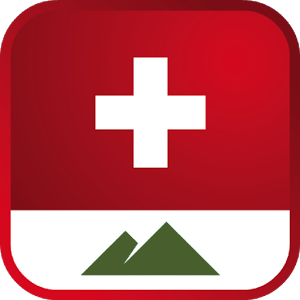
Any field activity should include first aid supplies. Packing, and being familiar with, your first aid kit is critical for field work. The contents of a good first aid kit will vary depending on activity; camping, hiking, altitude, unique environments (marine, desert, ...) will each have particular needs and challenges that may require specialization of your kit.
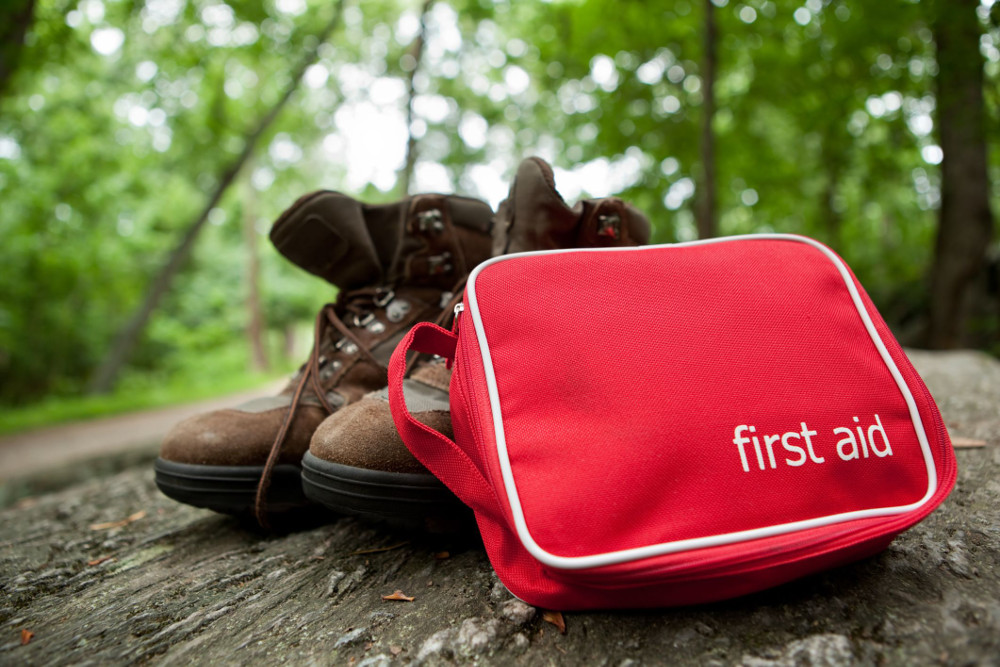
Buy a pre-built wilderness first aid kit -
National Outdoor Leadership School (NOLS), Adventure Medical Kits, Chinook Medical Gear
Wilderness Medicine courses (wilderness first aid and wilderness first responder) are offered through the UCSC Office of Physical Education, Recreation, and Sports (OPERS). See the OPERS website for upcoming courses.
Additional Resources
University of California
Scientific Diving & Boating Safety Program
Safety Guidelines for Field Research - UC Berkeley
Travel Assistance (Insurance and Health Information) - UCOP
Mosquito-borne Diseases
UCSC Mosquito Information Page
Mosquito Bite Prevention for Travelers - CDC
International Travel
Travel Guide - US State Department
Country Profile World Factbook - CIA
Health and Medical Considerations
International Travel and Health - WHO
Other
Library of Congress Country Studies (Alternate site)
Field Safety Plan Assistance/Questions
If you need assistance using the Field Safety Tool or have questions about Field Safety contact EH&S at (831) 459-1448 or fieldsafety@ucsc.edu.

